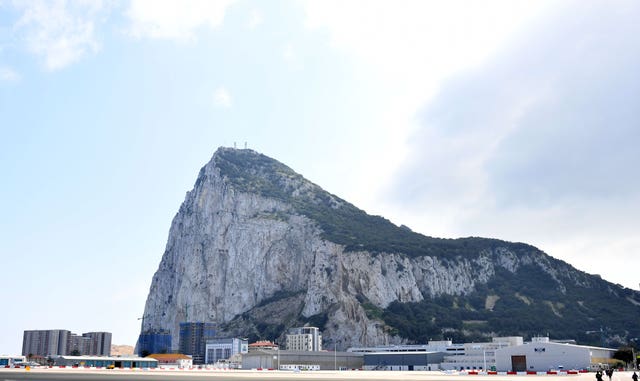Lord Cameron set for Brussels talks on Gibraltar and Northern Ireland
Concerns about Gibraltar’s relationship with the EU remain unresolved.

Lord David Cameron is set to hold further talks on the future of Gibraltar during a visit to Brussels on Thursday.
The Foreign Secretary is due to meet European Commission vice-president Maros Sefcovic, Spanish foreign minister Jose Manuel Albares and Gibraltar chief minister Fabian Picardo for a second round of discussions about the territory’s relationship with the EU.
The nature of that relationship remains unresolved following Brexit, with rules governing Gibraltar’s border with Spain understood to be a major sticking point.
Sir Bill Cash, a Eurosceptic Conservative MP and chairman of the Commons European Scrutiny Committee, warned last week that negotiations over Gibraltar risked becoming “Northern Ireland Protocol 2.0”.

In a letter to Foreign Office minister David Rutley, he said proposals outlined to his committee represented “a serious diminution of UK sovereignty”.
Of particular concern was the possibility that EU border checks could be carried out at Gibraltar’s airport, which Sir Bill said would “erode UK sovereignty to the point of meaninglessness”.
The Foreign Office has previously said the UK remains steadfast in support for Gibraltar and will not agree to anything that compromises sovereignty.
Lord Cameron will also co-chair a meeting of the Trade and Co-operation Agreement Partnership Council and a meeting of the Withdrawal Agreement Joint Committee with Mr Sefcovic.
The meetings will focus on the UK’s relationship with the EU, the implementation of the Windsor Framework and other issues including citizens’ rights and support for Ukraine.
The Foreign Secretary’s visit comes against the backdrop of continued concerns about the EU’s influence in Northern Ireland.
Belfast’s High Court ruled on Monday that sections of the Illegal Migration Act, which includes powers to deport asylum seekers to Rwanda, should be disapplied as they were incompatible with human rights protections guaranteed in Northern Ireland by post-Brexit arrangements.
The Government has said it will appeal against the decision, which some Conservative MPs have strongly criticised.





